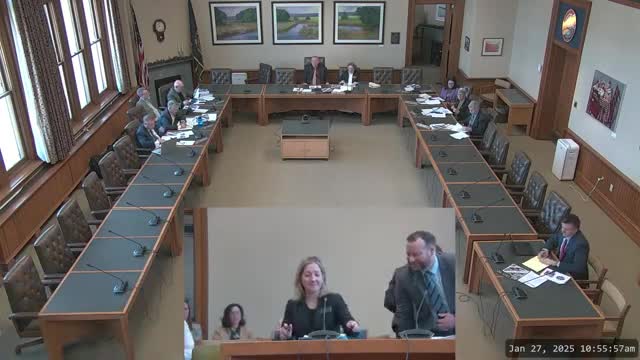DHHS Medicaid overview: roughly 185,000 enrolled; officials emphasize contract accountability
Get AI-powered insights, summaries, and transcripts
Subscribe
Summary
Associate commissioners Anne Landry and Jonathan Ballard gave the committee a Medicaid primer and described accountability steps the department uses with managed-care organizations and contractors to control costs and measure outcomes.
At an informational Division III Finance hearing, Associate Commissioner Anne Landry and Chief Medical Officer Jonathan Ballard gave a high-level overview of the state Medicaid program, described which populations Medicaid covers and emphasized contract-based accountability for cost and quality.
Landry told the committee that Medicaid is the insurer for many of the state’s most vulnerable residents and that the program covers specific populations—low-income children, pregnant women and families, some adults, people with disabilities and elderly individuals. She said the department uses a mix of federal-state mechanisms including state plan services and federally approved waivers to deliver services.
Ballard said accountability is central to managing Medicaid costs and outcomes. He told the committee that the program covers about 184,000–185,000 individuals in New Hampshire and that roughly 90,000 of those are children. Ballard described a set of performance measures the department collects from managed-care organizations, including primary-care attachment and preventive-care metrics, and he said those measures are used in contracts and in performance-based auto-assignment to encourage better care and lower costs.
Ballard summarized the accountability rationale this way: “These are taxpayer funds. They’re not ours,” and said the department uses more than 300 metrics from MCOs—claims and quality data—to track performance and, where appropriate, apply liquidated damages or other contract remedies.
Landry and Ballard told members that a more detailed Medicaid 101 presentation will follow, including explanations of federal match rates, the difference between state-plan services and waiver-covered services, and precise enrollment and spending breakdowns. Committee members asked for comparisons with other states’ eligibility thresholds and a clearer breakdown of per-capita costs for children versus adults; DHHS staff agreed to provide that data in subsequent briefings.
No formal action was taken on Medicaid policy at the hearing; staff said they will return with deeper data and the department’s planned performance and monitoring materials.
